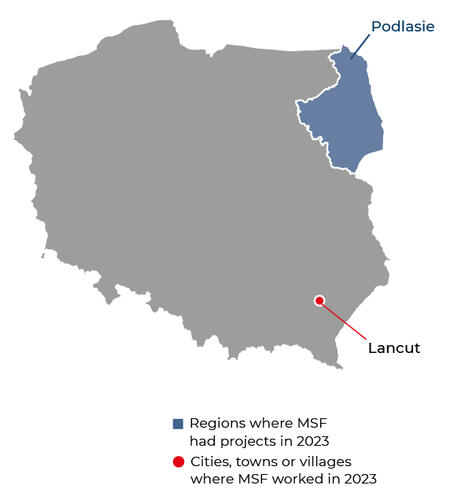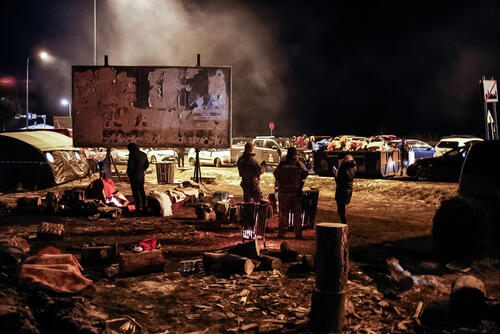We provide first aid to people on the move in the eastern border areas of Poland, often injured due to violence. We also work with refugees from Ukraine, referring those with tuberculosis to continuing treatment and mental health care.
Our activities in 2023 in Poland
Data and information from the International Activity Report 2023.
13
13
1.3 M€
1.3M
2005
2005

- Try a different country, year, format, or topic.
- Clear one or more filters



